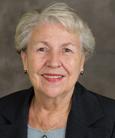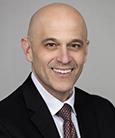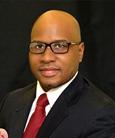
About SEHS
Mission Statement
Our School exemplifies excellence in education and human services through clinical practice, innovative, interdisciplinary and international curricula, community engagement, teaching, individual and collaborative research.
We encourage intellectual curiosity in our students, who become strong, effective, inclusive and ethical leaders in a global society.
Make my gift now
The School of Education and Human Services offers nationally accredited programs in education. All initial teacher preparation programs along with advanced programs in Educational Leadership and Reading Specialist are accredited by the nationally recognized Council for the Accreditation of Educator Preparation (CAEP) through Fall 2027. The School Counseling program along with Clinical Mental Health and the doctoral program in Counselor Education and Supervision are accredited by the Council for the Accreditation of Counseling and Related Educational Programs through March 31, 2021. Additionally, the Lowry Center for Early Childhood Education is accredited by the National Associate for the Education of Young Children (NAEYC). The Bachelor of Music in Music Education and the Bachelor of Music in Music Education and Performance along with other programs in the Department of Music are accredited by the National Association of Schools of Music (NASM) through 2023.
- Council for the Accreditation of Educator Preparation (CAEP) through Fall 2027
- Council for Accreditation of Counseling & Related Educational Programs (CACREP) through October 31, 2026
- National Association for the Education of Young Children (NAEYC)
- National Association of Schools of Music (NASM), through 2023
The School of Education and Human Services was granted Accreditation at the initial-licensure level and advanced-level by the Accreditation Council of the Council for the Accreditation of Educator Preparation (CAEP) on October 26, 2020 for a seven year term. Below is a link to the specific programs reviewed by the CAEP Accreditation Council.
As a component of CAEP accreditation, each education preparation provider must report and prominently display data on its website relating to eight Annual Reporting Measures established by CAEP, which are used to provide information to the public on program outcome and program impact. Oakland University provides descriptions and links to the data below.
- Measure 1: Completer Impact and Effectiveness
- New Educator Effectiveness: Link to a table that shows completer Educator Effectiveness Scores as reported by the State of Michigan. These scores incorporate 40% student impact data into their consideration along with principal observations. These scores show evidence of impact on P12 learning, teaching effectiveness and employer satisfaction.
- Measure 2: Satisfaction of Employers and Stakeholder Involvement
- Administrator Survey - Oakland: This link gives information about feedback from employers of the graduates of our initial teacher preparation programs.
- Year Out Survey of First Year Teachers: Link to a table that shows Year Out Survey of First Year Teachers as collected by the Michigan Department of Education with statewide survey benchmarks.
- New Educator Effectiveness: Link to a table that shows Educator Effectiveness Scores as reported by the State of Michigan. These scores are awarded by the hiring district and incorporate 40% student impact data into their consideration along with principal observations. These scores show evidence of impact on P12 learning, teaching effectiveness and employer satisfaction.
- Education Leadership Completer Satisfaction: Link to focus group outcomes for the completers of the Master of Education in Educational Leadership and the Educational Specialist in Leadership which both lead to the Michigan Department of Education licensure in Elementary and Secondary Administration K-12 (ES), and the Certificate in Central Office Administration which leads to the Central Office license (CO).
- District Affiliation Agreements (Memorandums of Understanding): Link to the document listing the PK12 Districts for which have established Affiliation Agreements or MOUs
- Advisory Boards: Link to a document outlining the advisory boards convened by Oakland University related to educator programs. These boards give feedback on curriculum, clinical experiences, standards alignments and assessments.
- Measure 3: Candidate Competency at Program Completion
- Initial Teacher Preparation Programs
- Candidate Performance Assessment of Student Teaching: Link to the Candidate Performance Assessment of Student Teaching (CPAST) for the past three semesters. This assessment is done at the end of intern teaching by the intern teacher, mentor teacher, and university supervisor, and the final ratings are a consensus of the three parties. This assessment shows that Oakland University intern teachers demonstrate proficiency related to the InTASC Model Core Teaching Standards.
- Professional Behaviors Assessment: Link to the Professional Behaviors Assessment (PBA), which measures candidates professional dispositions as related to the teaching profession throughout the program.
- Michigan Test for Teacher Certification: Michigan Test for Teacher Certification (MTTC) data with statewide benchmarks. This is a requirement in the State of Michigan for certification. The Reading Specialist, Learning Disabilities, Autism Spectrum Disorders and Emotional Impairment programs are advanced programs that have a licensure requirement and are also listed in the advanced program section.
- Advanced Educator Programs
- Assessment Data for Master of Education in Education Leadership: Link to assessment outcomes for the Master of Education in Education Leadership program leading to the Michigan Department of Education licensure in Elementary and Secondary Administration K-12 (ES) aligned to the CAEP Advanced Standard A1: Content and Pedagogical Knowledge.
- Assessment Data for Educational Specialist in Leadership: Link to assessment outcomes for the Educational Specialist in Leadership program leading to the Michigan Department of Education licensure in Elementary and Secondary Administration K-12 (ES) aligned to the CAEP Advanced Standard A1: Content and Pedagogical Knowledge.
- Assessment Data for Certificate in Central Office: Link to assessment outcomes for the Certificate in Central Office program leading to the Michigan Department of Education licensure in Central Office (CO)) aligned to the CAEP Advanced Standard A1: Content and Pedagogical Knowledge.
- Reading Specialist State Licensure Test: Link to outcomes related to the State of Michigan Test for Certification for the Reading Specialist. Test scores demonstrate that candidates in the Reading Specialist program are competent for certification.
- Special Education State Licensure Test Data: Link to outcomes for the Michigan Test for Teacher Certification for Learning Disabilities, Emotional Impairments, and Autism Spectrum Disorder certification in the State of Michigan. Test scores demonstrate that candidates in the graduate Special Education programs are competent for certification.
-
Educator Preparation Institution (EPI) Performance Score: The EPI Performance Score is released by the State of Michigan annually based on a university's education students' Michigan Test for Teacher Certification (MTTC) pass rates, and prior year’s satisfaction surveys collected from students and university supervisors, Educator Efficacy scores earned by program graduates in the first three years of teaching (as given by their principals through state mandated teacher evaluations based on observations and impact on student learning), School Administrator surveys, and school demographics.
- Initial Teacher Preparation Programs
- Measure 4: Ability of Completers to be Hired in Education Positions for Which They Have Been Prepared
- Graduate Employer Table: This table gives information about employment of School of Education and Human Services graduates which include both initial and advanced programs.
- Local Placement Patterns of Teacher Education Graduates: Tables show the districts that are employing Oakland University graduates and the number of teachers in traditional public and charter schools employed in Michigan.
- New Educator Effectiveness: Link to a table that shows completer Educator Effectiveness Scores as reported by the State of Michigan. These scores incorporate 40% student impact data into their consideration along with principal observations. These scores show evidence of impact on P12 learning, teaching effectiveness and employer satisfaction.
Avondale Partnership
An overarching goal of the Avondale/OU Partnership is to create a culture that supports a true community of learners, inspiring children of all abilities to learn and thrive. The partnership, by design, ensures that all participants see themselves as leaders, problem-solvers and critical thinkers. This learning environment is grounded in four key areas:
The health and wellness of Avondale’s families and community can be supported and encouraged through additional resources that are available within the Oakland University community. Wrap around services are provided through the SEHS Counseling Center, which provides no-cost personal counseling on Oakland University’s campus.
OUWB School of Medicine provides health and wellness lessons within Avondale’s elementary Schools through the Medical School Student as Educator experiences, as well as a co-teaching model at Avondale High School, where OUWB Medical School students work closely with Biology students to learn more about communicable diseases and immunizations. The lessons and experiences are co-created and intentionally designed to integrate the Michigan Core Science Standards as well as the Michigan Core Health Education standards.
National Publications
Carver, C. L., Hudson, M., Abbott, M., Bruha, S., Bugaj, C., Johnson, J. & Stock, S. (2017). Teachers learning together at Auburn Elementary: Supporting classroom teachers as associated teacher educators. In Crawford, C. & Harris, S. (Eds.) Handbook on Classroom Teachers as Associated Teacher Educators. Association of Teacher Educators.
Hudson, M., Childs, L. & Carver, C.L. (2016). Open doors. Open minds. Empowered teachers work and learn shoulder to shoulder. Journal of Staff Development, 37(4), 18-23.
State and National Presentations
Guzniczak, L., Hudson, M., & Campbell, B. (2017). Collaborating for professional learning: Sharing with practice and pre-service teachers. Presented at Michigan Reading Association 61th Annual Conference, Grand Rapids, MI.
Carver, C. L. (2017). Maintaining a clinical practice partnership: The role of difficult conversations. Paper presented at the 2017 Annual Meeting of the American Association of Colleges of Teacher Education, Tampa, FL.
Guzniczak, L., Jang, B.G., McEneaney, J., Liu, Y., Li P., Wu, W., & Blunt, J. (2016). Influences of a university-school partnership project on pre-service teacher's efficacy and pedagogical content knowledge in reading. A Symposium presented at the 66th Annual Literacy Research Association Conference, Nashville, TN.
Carver, C. L. (2016). Defining teacher leadership in context: Lessons from an elementary partnership school. Paper presented at the 2016 Annual Meeting of the University Council on Educational Leadership, Detroit, MI.
Carver, C. L. (2016). When teachers take the lead: Implications for principal leadership. Paper presented at the 2016 Annual Meeting of the American Educational Research Association, Washington, DC.
Guzniczak, L. & Hudson, M. (2016). Authentic settings of teacher learning and research: School-university partnerships in action. Paper presented at the Association of Teacher Educator’s Conference, Chicago, IL.
Carver, C. L., Hudson, M. & Stock, S. (2016). Improving clinical practice through robust professional learning. Paper presented at the 2016 Annual Meeting of the Association of Teacher Educators, Chicago, IL.
Guzniczak, L., Hudson, M. & Campbell, B. (2016). University-district partnerships: Meeting student needs, integrating resources and services. Presented at Michigan Reading Association’s 60th Annual Conference, Detroit, MI.
Guzniczak, L., McEneaney, J., Pei, L., Gol, N., Zhou, Y., & Liu, Y. (2015). Capturing pre-service teacher’s knowledge, efficacy, and growth in a literacy class through video data analysis. Paper presented at the annual meeting of the Literacy Research Association Conference, Carlsbad, CA.
Guzniczak, L. & Hudson, M. (2015). Avondale/Oakland University Partnership: United Are We. Michigan Reading Association Conference, Grand Rapids, MI. March 29, 2015.
Carver, C. L., Olson, M., Secord, D. & Hudson, M. (2014). Field placement teacher support and development: Lessons learned in a new school/university partnership. Paper presentation at the Annual Meeting of the Association of Teacher Educators.
COMMITTEE ON DIVERSITY, EQUITY AND INCLUSION
Mission and Vision
The Committee on Diversity, Equity and Inclusion engages multiple voices throughout the School of Education and Human Services at Oakland University, including students, staff, faculty, and campus and community partners.
We seek to compel reflection and interrogation of our worldviews, assumptions, biases and practices; dialogue across differences in brave spaces; and intersectional action toward social change at the individual, school and institutional levels.
We envision a transformative school and campus culture that supports educational equity, access, development, and success across race, ethnicity, gender, sexuality, faith, disability, socioeconomic status, age, and national origin and/or status.
The faculty, administration, and staff value each individual, and to that end, we amplify the expression of each unique voice. We are committed to social justice, which recognizes, identifies, and names institutional and structural inequities, barriers, and challenges based on gender, race, socioeconomic status, ethnicity, disability, language, religion, immigration status, age, and sexual orientation. Those committed to social justice take on the responsibility to be active and vocal advocates with those whose lives are impacted by injustice. Social justice engages in this important dialogue through individual, collective, and institutional introspection (e.g., implicit and explicit bias), and dismantles policies and attitudes that affect our stakeholders (i.e., teacher candidates, students, clients, business partners, partner schools). It is our aim to build relationships across differences within our school, university, community, and society.
Living Out Our Core Values
We will:
- engage multiple voices throughout SEHS at Oakland University, including students, staff, faculty, and campus and community partners
- reflect on and interrogate our worldviews, assumptions, biases, and practices
- dialogue across differences in brave spaces, and take intersectional action towards social change at the individual, school, and institutional levels
- dismantle policies and attitudes that affect our stakeholders (i.e., students, clients, business partners, partner schools)
For additional information, contact Dr. Greg Bartley at [email protected].
The Resource Development Board is an advisory body to the School of Education and Human Services (SEHS). The composition, functions, and responsibilities of the Resource Development Board are to assist SEHS carrying out its mission; attend school meetings, student functions, and other university events; serve as an ambassador for SEHS to the larger community, including stewardship of the existing relationships with friends of SEHS and assist in developing new friends for the school; assist the school’s endeavors to obtain financial support for its initiatives; and recruit new board members as needed.
Board Members

Kathrine Banicki
Member

Stephanie Bedricky
Member

Neil Deluca
Member

Allen Gough
Emeritus

Barbara Gough
Emeritus

Napoleon Harrington
Member

Anita Hicks
Member

Katie Juronoc
Secretary

Eddie Rayborn Jr.
Member

Ron Roberts
Member

Tobi Russell
Member

Jim Schwarz

Andrea Swicegood
Chair

Mahima Tripathi
Member

Addie Williams
Member

Josh Wrinkle
Member

Danielle Zuccaro
Member
School of Education and Human Services
456 Pioneer Drive
Rochester, MI 48309-4482
(location map)
248 370 3050
[email protected]